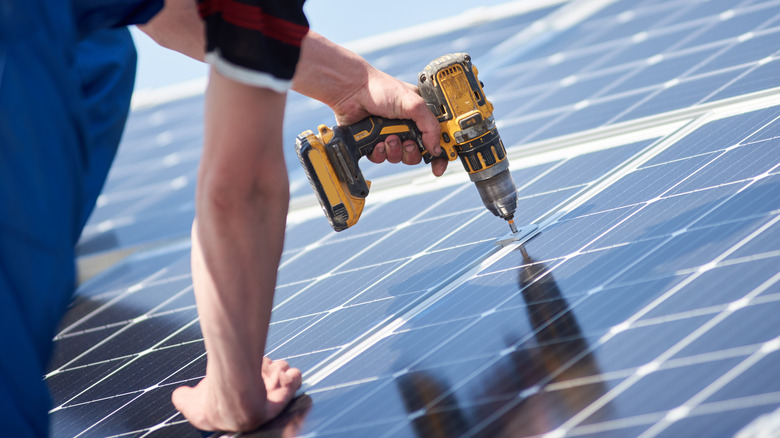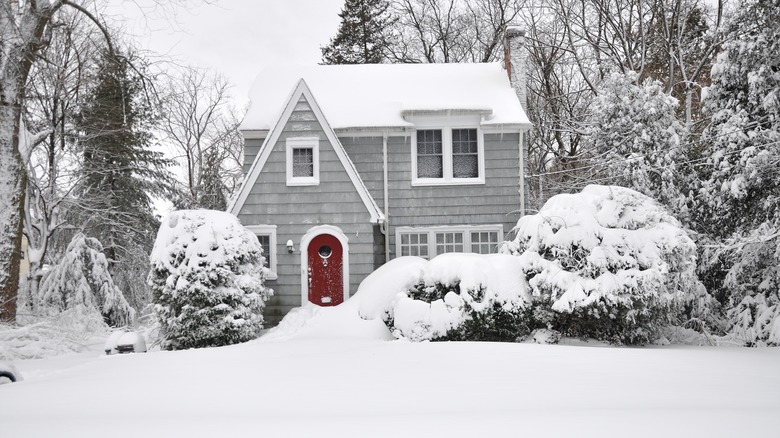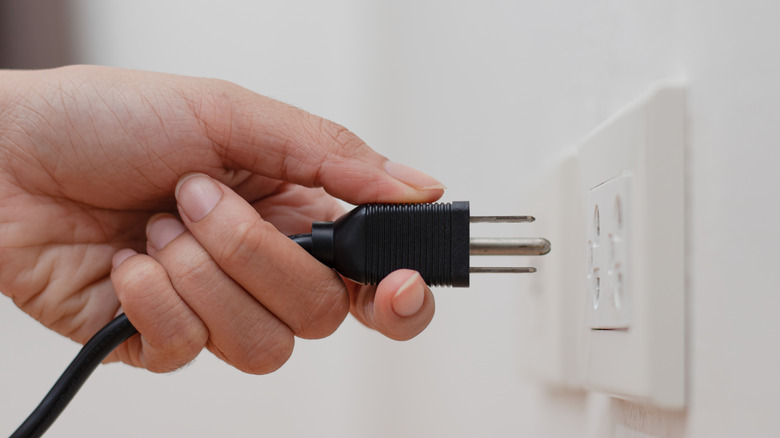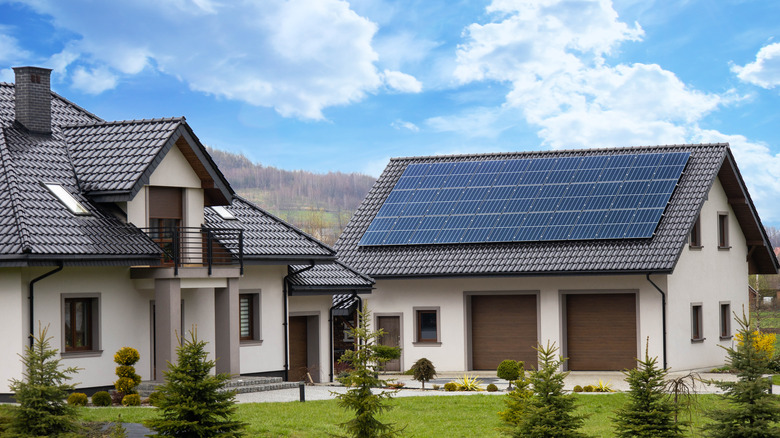3 Savvy Tips For Fighting Climate Change From Your House
Every day, Americans contribute to climate change, which, according to the World Health Organization, is the greatest health threat that humanity faces today. However, while going green might seem like a tall task for some homeowners, the prospect of saving some money while helping to save the environment is definitely worth the effort. Luckily, there are quite a few ways for ordinary people to help fight climate change from their own homes. That being said, going about things with a business as usual approach is definitely not the solution to our environmental woes.
Since a primary cause of climate change is the generation of electricity via the burning of fossil fuels (per the United Nations), lowering your household's energy expenditure is one of the best ways to limit your impact on the earth's climate. Some great ways to do this are weatherizing your home, unplugging energy-guzzling electronics when not in use, and implementing alternative sources of energy whenever possible. Here are some budget-savvy tips we recommend for saving on your energy bill while doing your part in the fight against climate change.
Weatherize your home
According to the U.S. Energy Information Administration, maintaining a comfortable temperature inside of the home accounts for over half of America's household energy usage. As such, weatherizing your home so that it's easier to heat during the colder months is one of the most effective ways to lower your energy bill and limit your home's environmental footprint. A great starting point when weatherizing your home is to seal all of the gaps in your house's exterior doors to ensure that they are not allowing cold drafts to come inside. You can also buy affordable DIY insulation kits for your home's windows or replace your windows with a more eco-friendly design.
Of course, even if you improve your home insulation, you'll definitely want your HVAC system to run as efficiently as possible. According to the U.S. Department of Energy, upgrading an antiquated HVAC system to a new high-efficiency model can save you up to 40% on your home's cooling costs. Alternatively, you can also pay a professional for a yearly HVAC tune-up (per Wyndham Capital) to ensure that you're not wasting energy due to ductwork issues or an improperly-lubricated HVAC setup.
Hidden energy guzzlers
Unfortunately, your home's wasteful energy usage probably extends beyond your air conditioner and central heating system. In fact, many items in your house use energy without you even realizing it. According to Alliance To Save Energy, leaving electronics such as your computer, DVR, television, and phone chargers plugged in 24/7 wastes a lot of energy even when these items are not in use. As such, you should unplug electronics whenever you can, or run them using a power strip that is easy to turn on and off. Also, if you still have any old appliances that waste a lot of energy, you should replace them with more energy-efficient models.
Another energy guzzler that many homeowners do not think about is their water heater. According to Haller Enterprises, most homeowners can live comfortably with their water heater temperature set to 120 degrees, yet unknowingly keep the temperature set much higher. Thus, tweaking your water heater temperature can lead to substantial energy savings and a diminished environmental footprint. You should also consider modifying your behavior wherever possible, since turning out the lights when leaving a room, taking shorter showers, and limiting trips to the fridge will all have a noticeable impact on your energy use.
Embrace solar energy
While "going solar" used to be a pipe dream for many eco-conscious homeowners, that's not necessarily the case anymore. For one thing, the cost of implementing solar power has become more affordable every year for over a decade (per the U.S. Department of Energy), so homeowners who were priced out of high-tech solar panels in 2010 might find them to be a wise investment in 2022. To sweeten the deal, implementing a solar energy system in your home can increase your home's resale value when it becomes time to sell while saving you cash month-to-month on your energy bill.
With energy costs rising rapidly, many experts think there's never been a better time for homeowners to embrace solar energy. However, there are a lot of factors to consider before you can outfit your home with solar panels. For instance, your roof's size and slope will both affect its ability to house solar panels effectively and harness the sun's energy. If you're interested in going solar, consider contacting a professional in order to determine if your home is a good fit for the solar energy setup of your dreams.



